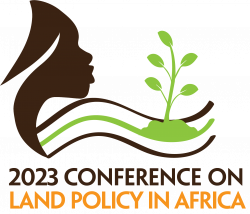Only 40% of 7.3 million hectares of land leased or acquired in Africa was developed
 While land is one of Africa’s most important resources, land is also one of the sources of contention on the continent.
While land is one of Africa’s most important resources, land is also one of the sources of contention on the continent.
Between 2010 and 2020, while some 7.3 million hectares of land have been leased or acquired in Africa, only 40 per cent of that has been eventually developed.
In a presentation at a Masterclass for journalists from around the continent covering the 2023 Conference on Land Policy in Africa (CLPA) being held in the Ethiopian capital, Addis Ababa, Eileen Wakesho, a land and natural resource justice expert, noted among other things that the CLPA is Africa’s most significant gathering in the field of land policy and governance convened by the African Union Commission (AUC), the African Development Bank (AfDB), and the United Nations Economic Commission for Africa.
“It is a policy dialogue, information sharing, and learning event. It is also a platform for robust and constructive dialogue among policymakers, academia, civil society, traditional authorities and private sector representatives,” she said, adding that dialogue is key to generating innovative solutions to land governance in Africa.
She indicated further that some of the objectives of the CLPA include contributing to the implementation of the AU Agenda on Land, deepening capacity for land policy development, implementation, and monitoring, provide a platform for access to knowledge and information in support of evidence-based land policy making as well as showcase promising practices in the field of land policy and governance, and facilitate networking amongst land actors in Africa.
In her presentation, Dr. Joan Kagwanja touched on the issues and challenges related to land in Africa, such as cultural practices like discrimination against women, lack of representation, the inalienable aspect of land and communal land ownership.
She also pointed out the impact of colonial legacy that has led to pluralistic property regimes, the state sovereignty over land, displacement and land allocation.
Remarking on the subject of poor governance, she said they have led to centralized structures, lack of transparency, inadequate consultation, low access to information, corruption and elite capture or landgrab.
Prof Kimani Njogu of the Africa Land Policy Centre (ALPC) of the Economic Commission for Africa acknowledged that the media is key to socio-economic transformation of Africa.
He also said intra-Africa trade is very low, while unemployment rates are very high but there are emerging start-ups and innovators in business and technology sectors.
“Land based resources provide opportunity for the youth, but land governance concerns ought to be addressed,” he said.
Prof Njogu urged the journalists to continue to play their watchdog, historical and educational roles so that the public can make well informed decisions in policy formulation.
“You should expose corrupt practices related to land and trade practices, monitor land reforms, acquisitions, deals and demand accountability from public officers, as well as create forums for land and trade stakeholders to engage the state,” he said, adding that they should utilize information technology in reporting to advance land reforms, and advance the land rights of youth, women, and marginalized communities by asking key questions.
“You should advocate for free movement of people and commerce,” he added.
Dr Sandra Bhatasara in her presentation noted that the African continent is at a crucial juncture with two significant developments: the recognition and promotion of women’s land rights and the African Continental Free Trade Area (AfCFTA) implementation.
“Both initiatives can potentially drive sustainable development, gender equality, and economic growth across Africa,” she said.
According to the concept note for the Masterclass, the creation of media content on land governance, rule of law and intra-Africa trade could enhance inclusive and sustainable growth. Such content, it said, might involve how access to and land use drives decisions on trade, business and economic activities, how regional policies on the management of cross border natural resources could increase stability, agribusiness and the competing interests over land, women’s land rights and trade, best practices in community land rights, infrastructure and transport planning.
It argued that by understanding how land governance policies and practices affect opportunities for intra-Africa trade and vice-versa, journalists are able to inform and educate the general public and decision makers.
“They can contribute to broadening the scope of community debates and invoke perspectives and world views that accelerate trade, protect community interests over land, enhance security, peaceful co-existence, address environmental concerns and effects of climate change on communities, and show how inclusive land governance reforms can benefit intra-Africa trade.
Journalists can also show how trends in trade can lead to a review of land policies and practices to meet business and economic needs. Through the framing of stories, they can also influence policymakers to adopt policies and frameworks that advance inclusive and sustainable use of land on the continent to accelerate the implementation of AfCFTA,” it said.
The 2023 Conference on Land Policy in Africa is under the theme: “Promoting Sustainable Land Governance in Africa for Accelerated Implementation of the African Continental Free Trade Area”, from November 21 to 24, 2023.
The organisers say the theme is expected to generate greater political commitment and accelerate the effective implementation of the AfCFTA to fully benefit the African citizenry and achieve the aspirations and goals of Agenda 2063.
More than 930 delegates are expected to participate in the conference in-person and virtually.
By Emmanuel K Dogbevi, in Addis Ababa, Ethiopia
Copyright ©2023 by NewsBridge Africa
All rights reserved. This article or any portion thereof may not be reproduced or used in any manner whatsoever without the express written permission of the publisher except for the use of brief quotations in reviews.
